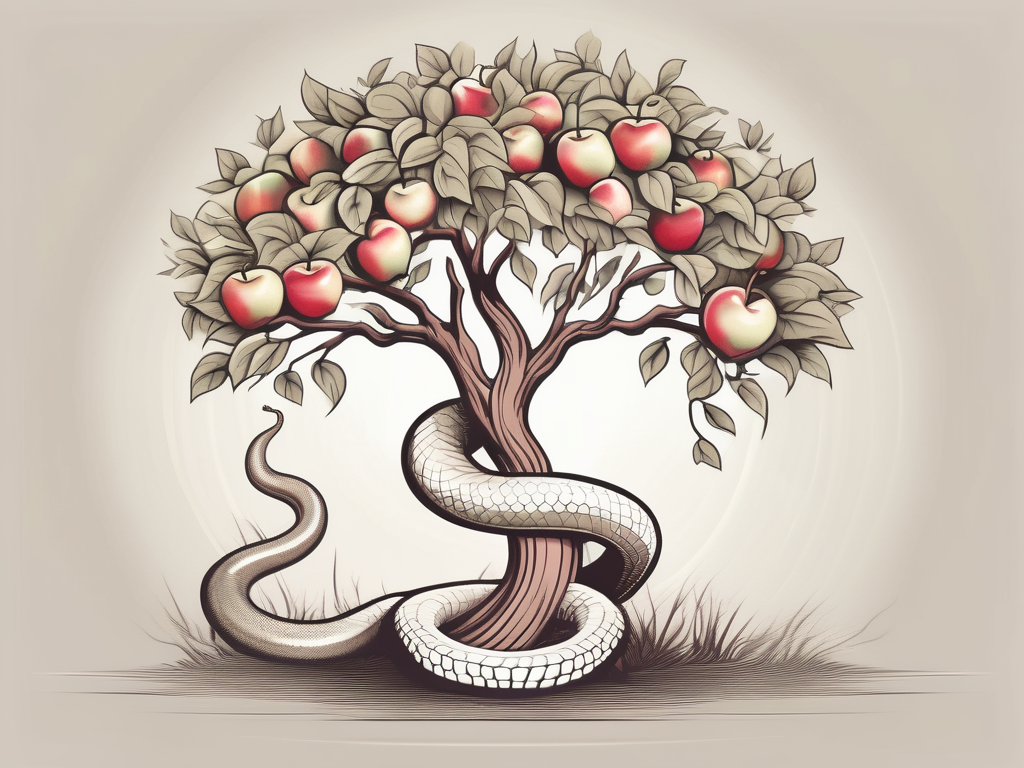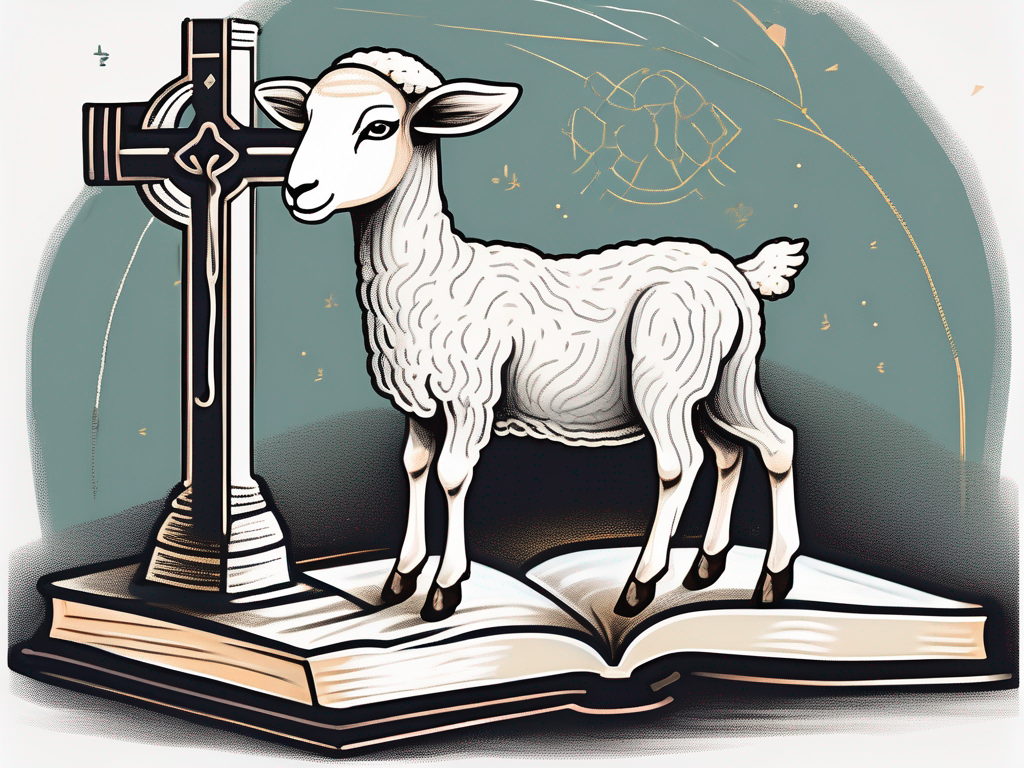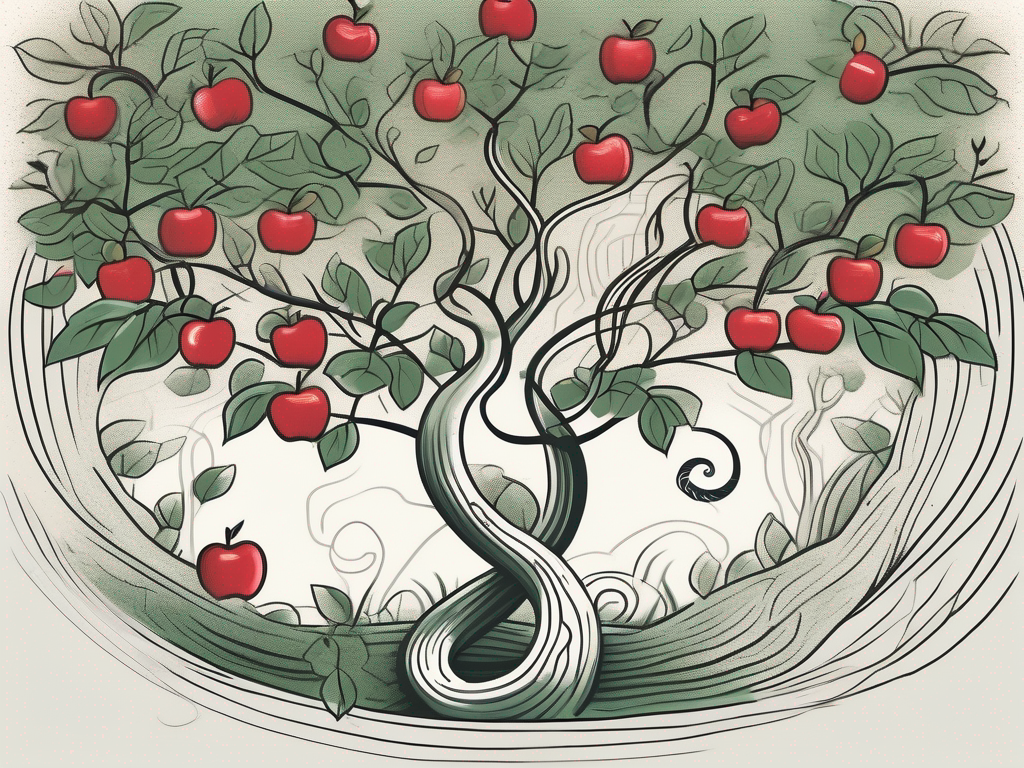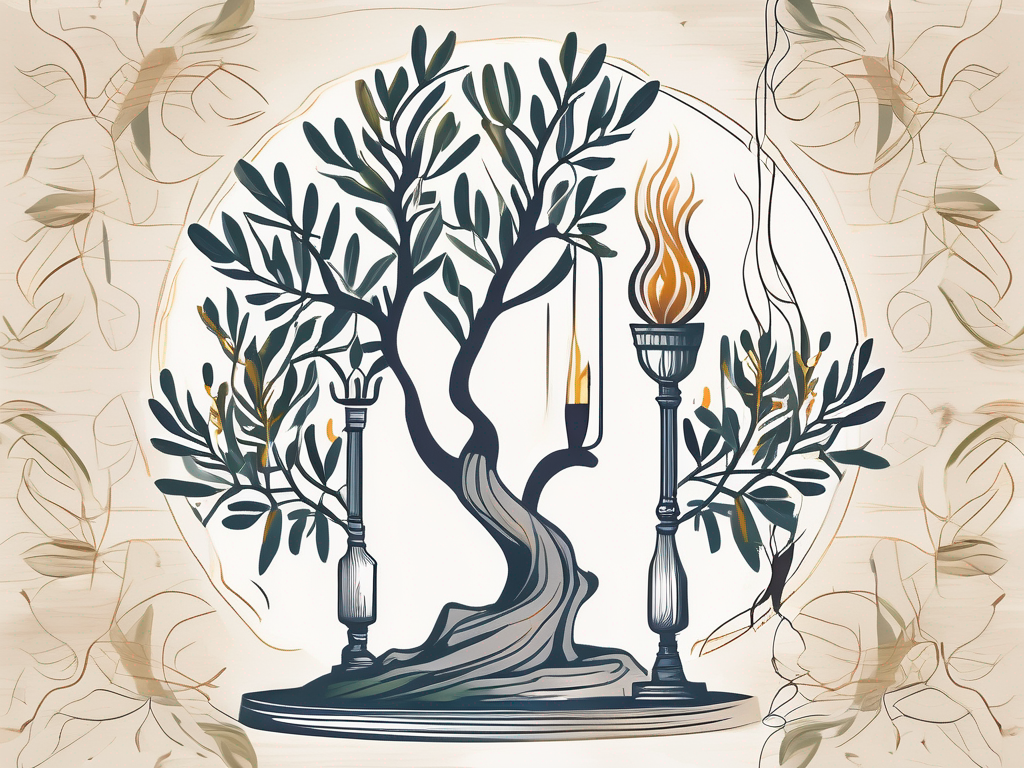In this article, we will delve into the fascinating and multidimensional role of Eve in the Bible. From understanding the biblical context to exploring different theological perspectives and feminist readings, we will analyze Eve’s character, her actions, and her impact on religious and cultural contexts. So, let’s dive in and explore the complex figure that is Eve.
Understanding the Biblical Context of Eve
Eve is prominently featured in the Book of Genesis, the first book of the Bible. Genesis provides us with the foundational story of creation and the beginning of humanity. Within this context, Eve plays a crucial role in the narrative, and her actions have significant implications for the future of humankind.
Eve in the Book of Genesis
In the Book of Genesis, Eve is portrayed as the first woman, created by God as a companion for Adam, the first man. She is presented as a partner and helper to Adam, reflecting the importance of relationship and unity within human existence.
This significant partnership between Adam and Eve serves as the foundation for marriage and the establishment of family, emphasizing the importance of love, companionship, and support in human relationships.
However, Eve’s story takes a dramatic turn with her interaction with the serpent, which leads to the infamous fall from grace and consequences for all of humanity. This event raises questions about free will, temptation, and the consequences of our actions.
The Creation of Eve: Significance and Interpretations
The creation of Eve from Adam’s rib has been the subject of various interpretations and debates. Some view this act as a declaration of equality, suggesting that Eve was not created from Adam’s head to dominate him nor from his feet to be subservient, but from his side to be equal.
Others interpret Eve’s creation from Adam’s rib as a symbol of companionship and unity, highlighting the importance of mutual support and partnership between men and women.
Regardless of the interpretation, the creation of Eve marks a profound moment of human history, representing the emergence of gender roles and dynamics within society.
Expanding further on the significance of Eve in the Book of Genesis, it is important to note that her creation is not only a story of companionship and unity but also a reflection of God’s intention for human relationships. By creating Eve as a partner for Adam, God establishes the importance of human connection and the need for mutual support.
Furthermore, Eve’s role as the first woman carries significant weight in terms of her influence on future generations. As the mother of all humanity, she becomes a symbol of motherhood and the nurturing qualities that are inherent in women.
Additionally, Eve’s interaction with the serpent and the subsequent fall from grace highlights the complexities of human nature. It raises questions about the nature of temptation and the consequences of our choices. The story of Eve serves as a cautionary tale, reminding us of the importance of making wise decisions and resisting temptation.
Moreover, the creation of Eve from Adam’s rib sparks discussions about gender equality and the role of women in society. Some argue that her creation from Adam’s rib signifies her equal status with men, emphasizing the importance of gender equality in all aspects of life.
On the other hand, others interpret Eve’s creation as a symbol of complementarity, suggesting that men and women have unique qualities that, when combined, create a harmonious partnership. This interpretation emphasizes the importance of recognizing and valuing the differences between genders.
Overall, the story of Eve in the Book of Genesis provides a rich and complex narrative that explores themes of companionship, unity, temptation, and gender roles. It invites readers to reflect on the significance of these themes in their own lives and consider the lessons that can be learned from Eve’s story.
The Characterization of Eve
Now that we have explored the biblical context, let’s focus on Eve as a character in the Bible. Understanding Eve’s role and actions can shed light on her significance not only within the biblical narrative but also in wider theological and cultural discussions.
Eve as the First Woman
Eve’s status as the first woman magnifies her importance as a symbol of femininity and the beginning of the human race. Her existence as the first woman establishes her as a matriarchal figure and empowers subsequent generations of women to embrace their unique qualities and contributions to society.
As the first woman, Eve carries the weight of responsibility for the future of humanity. Her actions and choices have far-reaching consequences, shaping the course of history. She represents the potential for growth, change, and the inherent power of women to shape the world around them.
Furthermore, Eve’s role as the first woman also highlights the complexity of female identity. She embodies both strength and vulnerability, curiosity and caution. This multidimensionality invites us to explore the diverse experiences and characteristics that define womanhood.
Eve’s Relationship with Adam
Eve’s relationship with Adam exemplifies the deep bond between couples and highlights the importance of mutual understanding and support. Their partnership teaches us about the complexities and challenges that can arise within relationships and emphasizes the need for open communication and shared responsibilities.
Adam and Eve’s relationship serves as a reminder that no relationship is without its struggles. Their story reminds us that it is through facing these challenges together that couples can grow stronger and deepen their connection.
However, their relationship also demonstrates the potential for vulnerability and the consequences of succumbing to temptation, as evidenced by their fall from paradise. This cautionary tale reminds us of the importance of trust, self-control, and the need to resist temptation for the sake of preserving harmony and well-being within relationships.
Eve’s Interaction with the Serpent
Eve’s interaction with the serpent exposes the vulnerability of human nature to manipulation and deception. This encounter raises questions about the nature of evil, the power of persuasion, and the consequences of disobedience.
As Eve engages in conversation with the serpent, we witness the complexity of human decision-making. We are confronted with the ethical dilemma of choosing between obedience and the pursuit of knowledge. This encounter challenges us to reflect on the nature of temptation and the consequences of our choices.
Despite the negative ramifications of her actions, some interpretations view Eve’s curiosity and desire for knowledge as a positive aspect of her character, highlighting her courage and thirst for understanding the world around her. This perspective invites us to reconsider the traditional portrayal of Eve as solely responsible for the fall from paradise and instead appreciate her as a complex and multifaceted character.
In conclusion, Eve’s characterization in the Bible offers us valuable insights into the nature of femininity, relationships, and the complexities of human decision-making. Exploring her story allows us to engage in meaningful discussions about gender, morality, and the pursuit of knowledge. By delving deeper into Eve’s character, we can gain a greater appreciation for the rich tapestry of human experiences and the profound lessons embedded within biblical narratives.
Theological Perspectives on Eve
Now let’s examine Eve’s role from different theological perspectives. Throughout history, various religious traditions have offered unique insights and interpretations of Eve’s character and significance within their respective doctrines.
Eve, the first woman created by God, holds a prominent place in theological discussions. Her story, as depicted in the Bible, has been analyzed and dissected by scholars and theologians across different faiths, each offering their own nuanced understanding of her actions and their implications.
Eve in Christian Theology
In Christian theology, Eve’s actions in the Garden of Eden are often seen as the origin of sin and the reason for humankind’s need for salvation through Christ. This theological perspective emphasizes Eve’s role as the mother of all humanity and her shared responsibility with Adam for their disobedience.
Christian interpretations delve into the consequences of Eve’s decision to eat the forbidden fruit, highlighting the profound impact it had on the relationship between humanity and God. The fall of Adam and Eve from grace is viewed as a pivotal event that shattered the perfect harmony between God and His creation.
However, Christian interpretations also highlight the redemptive power of Christ’s sacrifice, providing hope and forgiveness for all who believe. Eve’s story, therefore, becomes a testament to the transformative nature of God’s love and the possibility of redemption for humanity.
Eve in Jewish Interpretations
Jewish interpretations of Eve offer a diverse range of understanding. Some Jewish scholars focus on Eve’s curiosity and her pursuit of knowledge, celebrating her courage and desire for intellectual growth. They view her decision to partake of the forbidden fruit as a symbol of human curiosity and the pursuit of wisdom.
Others emphasize the lesson of personal responsibility and accountability for one’s actions. Eve’s story serves as a cautionary tale, reminding individuals of the consequences that may arise from succumbing to temptation and straying from God’s commandments.
Regardless of the specific interpretation, Eve’s story remains an important cultural and spiritual touchstone within Jewish traditions. It serves as a reminder of the complexities of human nature and the ongoing struggle to maintain a righteous path.
Furthermore, Eve’s role as the mother of all humanity is deeply revered in Jewish theology. She is seen as the progenitor of the Jewish people, carrying the responsibility of ensuring the continuity of God’s covenant with humankind.
Overall, the theological perspectives on Eve provide a rich tapestry of interpretations that shed light on the complexities of human nature, the consequences of our choices, and the potential for redemption and growth. Eve’s story continues to captivate and inspire individuals across different religious traditions, inviting them to reflect on their own lives and relationship with the divine.
Feminist Readings of Eve
Now let’s explore Eve from a feminist perspective. Eve’s character has been a subject of much debate and analysis within feminist circles. Her portrayal often reflects the deeply entrenched gender norms and patriarchal structures present in many religious texts and societies.
Eve as a Symbol of Female Empowerment
Some feminist readings perceive Eve as a symbol of female empowerment, challenging traditional interpretations that cast her as a source of sin and temptation. Instead, these interpretations highlight Eve’s courage to defy societal norms and her pursuit of knowledge and self-discovery.
Eve’s story serves as a reminder to women today that they too can challenge established systems and pursue their own desires and aspirations.
Critiques of Eve’s Portrayal
However, other feminist interpretations critique the portrayal of Eve as a scapegoat for humanity’s downfall and the perpetuation of gender stereotypes. These perspectives call for a reevaluation of Eve’s character within the broader context of the Bible and the societal pressures that influenced her choices.
By critically engaging with traditional narratives, feminist scholars seek to challenge and dismantle oppressive frameworks that limit women’s agency and perpetuate harmful cultural norms.
Eve’s Legacy in Religious and Cultural Context
Eve’s influential presence extends beyond the biblical narrative and continues to inspire artists, writers, and thinkers across different cultures and time periods. Let’s explore the legacy of Eve and her impact on art, literature, and modern interpretations.
Eve in Art and Literature
Throughout history, countless artists and authors have depicted Eve’s story, interpreting her character in diverse ways. Paintings, sculptures, and literary works capture various facets of Eve, highlighting her beauty, strength, or vulnerability.
From Renaissance masterpieces to modern feminist literature, Eve’s image and story continue to be a source of inspiration for creatives, contributing to ongoing discussions about gender, power, and spirituality.
Modern Interpretations of Eve’s Role
In contemporary society, Eve’s role continues to be a subject of exploration and reinterpretation. As cultural norms evolve, so too do the ways in which we understand and interpret biblical figures such as Eve.
Modern interpretations strive to provide nuanced perspectives that challenge traditional narratives and shed light on the complexities of Eve’s character. These interpretations encourage further dialogue and reflection on the role of women in society and the importance of gender equality.
Conclusion
Eve’s role in the Bible is dynamic and multifaceted. From her creation in the Book of Genesis to her characterization as the first woman and her significance within theological and feminist discourses, Eve’s story captures the imagination and sparks important discussions.
Whether viewed through a religious, cultural, or feminist lens, examining Eve’s role and actions invites us to reflect on fundamental human questions, such as the nature of free will, the pursuit of knowledge, and the complexities of gender dynamics.
Ultimately, the comprehensive analysis of Eve reminds us of the enduring power of biblical narratives to inspire critical thought, challenge prevailing norms, and shape our understanding of ourselves and our place in the world.












